BRITS are being warned about a fake social media post which claims four young people ended up in intensive care after treating coronavirus with ibuprofen.
The message has appeared on various platforms, including Facebook and Twitter, alleging to have been confirmed by an NHS infectious disease consultant.
Read our coronavirus live blog for the latest news & updates
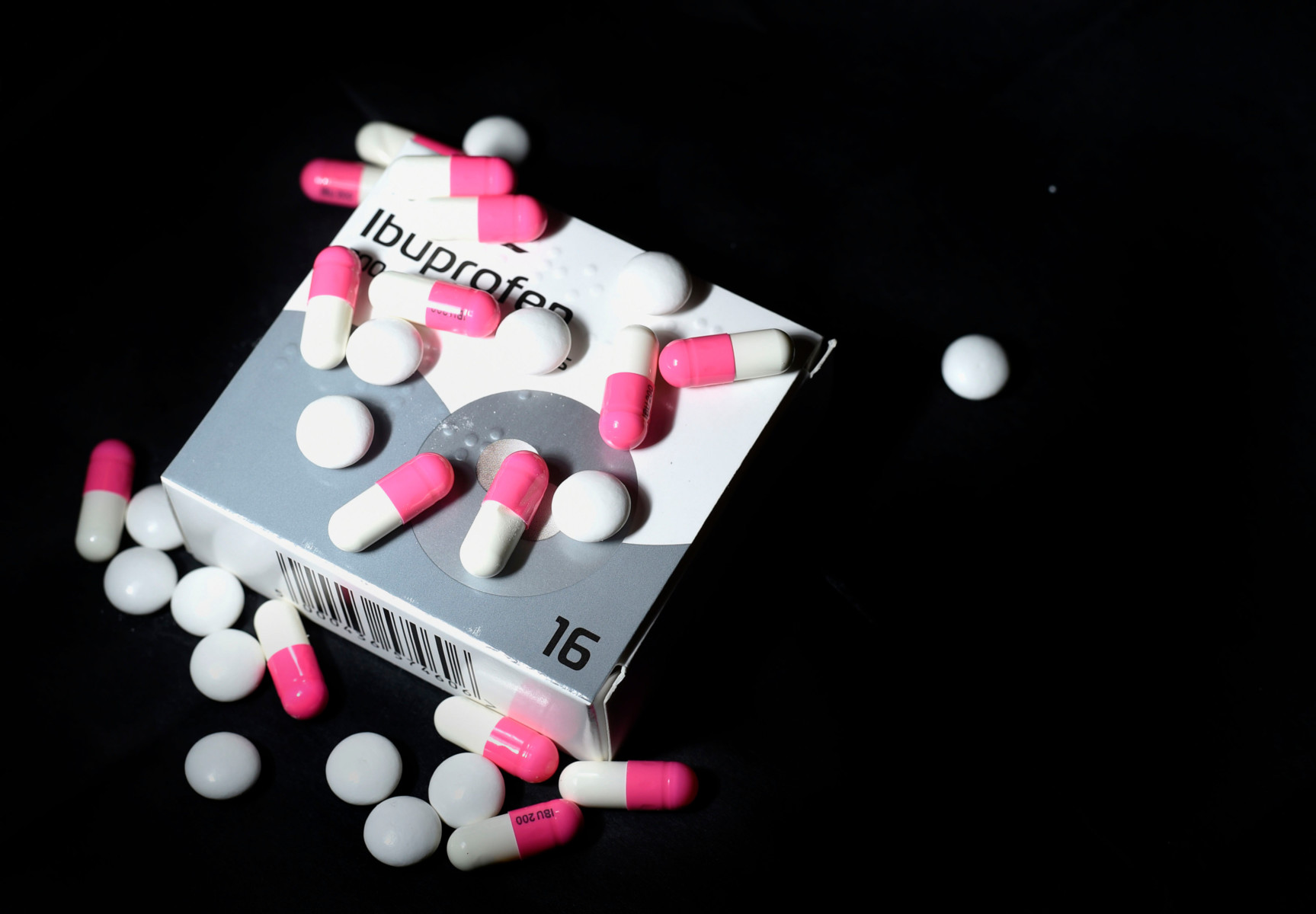
It claims that the group of “healthy” teenagers were in an intensive care unit (ICU) in Cork having taken anti-inflammatories.
The post has also popped up in other places claiming the youngsters are from France, Germany or China.
However, it’s been discredited as “fake news” by the BBC’s science and environment editor Tom Feilden.
He told the Today programme: “There have been a number of salacious stories circulating on social media.
“Most of them seem to start with the reference to a doctor I know or a doctor in the family has told me.
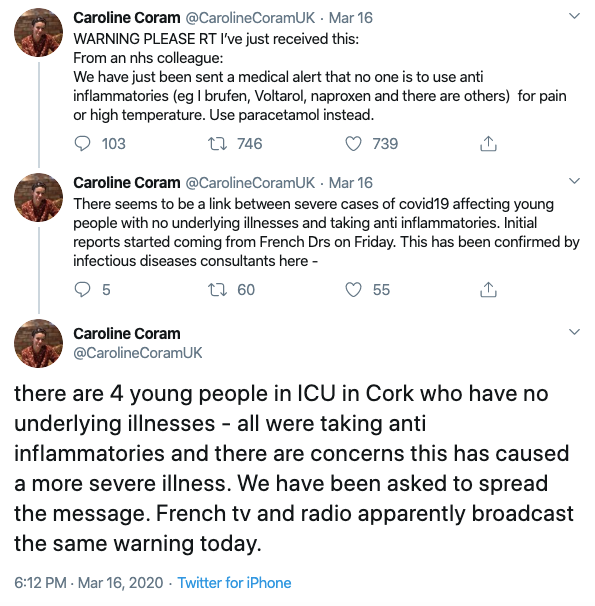
“A few of them seem to involve four healthy teenagers and seem to be popping up all over the world – some of them are in Cork, France, Germany and in China.
“They had no underlying medical conditions at all and took ibuprofen or another non-steroidal inflammatory drug to help with the symptoms when they contracted coronavirus and have all ended up in intensive care.
“They are all fake news. None of the relevant authorities when you try and pin down a location can find these people.”
It comes amid concerns that anti-inflammatories like ibuprofen can aggravate coronavirus symptoms, especially for people with conditions like asthma, heart and circulatory problems.
Tap to see where COVID-19 is near you
The NHS has also updated its guidance – until last week it said that both ibuprofen and paracetamol could be taken to alleviate symptoms of coronavirus.
However, the now the updated NHS guidance states: “There is currently no strong evidence that ibuprofen can make coronavirus worse.
“But until we have more information, take paracetamol to treat the symptoms of corornavirus, unless your doctor has told you paracetamol is not suitable for you.”
It follows advice from the government’s chief scientific adviser Sir Patrick Vallance who has suggested people should not take the drug to treat Covid-19.
During a hearing of the Health Select Committee on Tuesday, he said: “The ibuprofen example – it may or may not be right, I don’t know, but the sensible thing to do would be to say don’t take it at the moment, take something else – paracetamol or something.”

Last week, French health minister Olivier Veran suggested that anti-inflammatory drugs could worsen the infection.
In a tweet, Mr Veran wrote: “Taking anti-inflammatory drugs (ibuprofen, cortisone, etc.) may be a factor in worsening the infection. If you have a fever, take paracetamol. If you are already on anti-inflammatory drugs or if in doubt, ask your doctor for advice.”
And a British man also warned people not to give coronavirus-infected children ibuprofen as it may make their symptoms worse.
Dan Milner, from Bristol, said his four-year-old stepdaughter’s condition rapidly deteriorated after she took the drug in liquid form at the weekend.
The number of people killed by coronavirus in the UK has hit 71 while cases exploded by 407 to 1,950 yesterday in the biggest single leap in patients with the killer bug in one day.
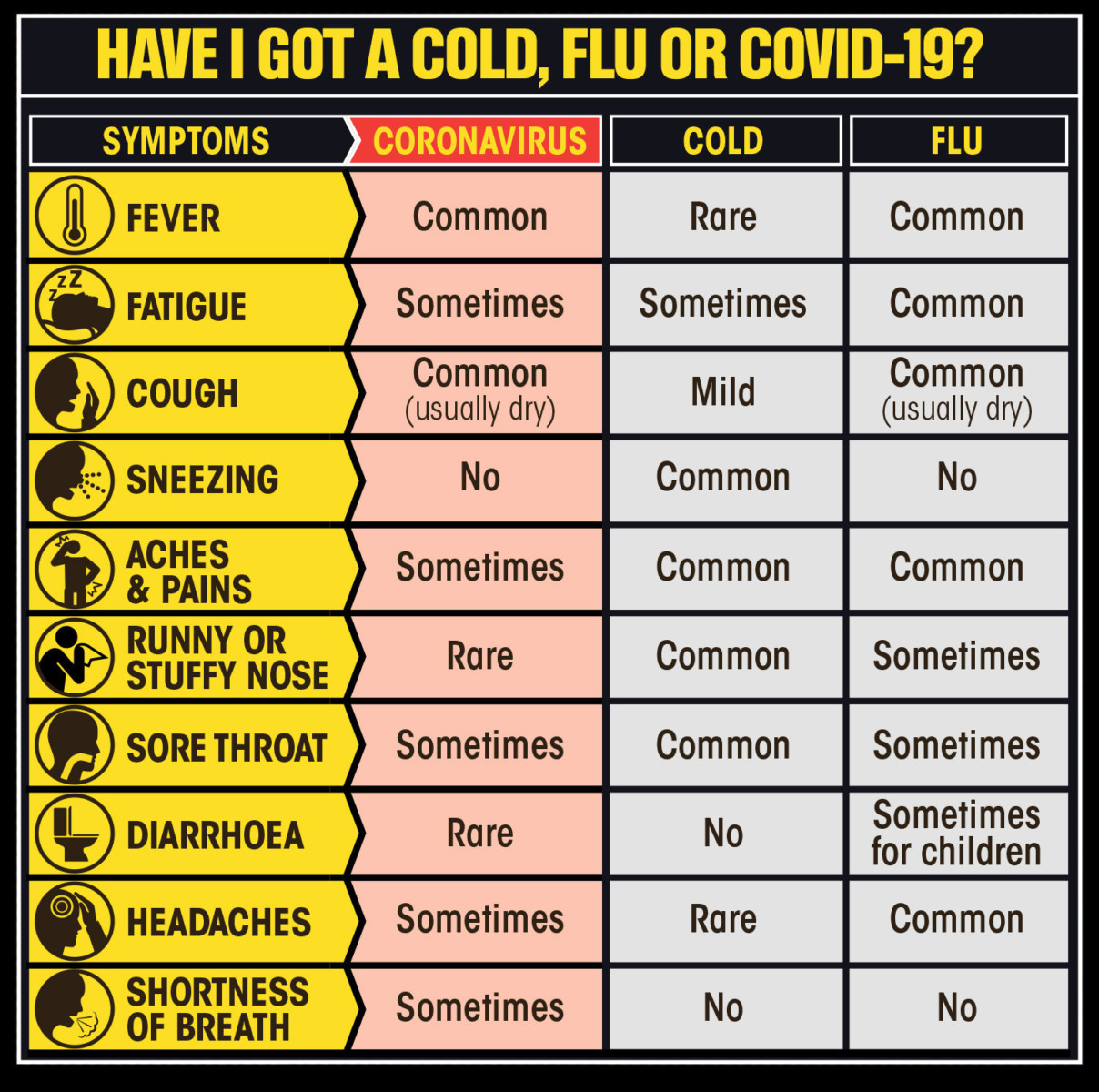
Public Health England (PHE) said there is no published scientific evidence that the drug increases the risk of catching coronavirus or makes the illness worse.
PHE said that most people with Covid-19 will have a mild illness and some people may need to take medicines, such as paracetamol or ibuprofen, to help with raised temperature, headache and other pains.
Use paracetamol
But other experts in Britain have said that people should use paracetamol to relieve symptoms caused by infection such as fever.
Dr Tom Wingfield, senior clinical lecturer and honorary consultant physician at the Liverpool School of Tropical Medicine, said: “In the UK, paracetamol would generally be preferred over non-steroidal anti-inflammatory drugs (NSAIDS), such as ibuprofen, to relieve symptoms caused by infection such as fever.
“This is because, when taken according to the manufacturer’s and/or a health professional’s instructions in terms of timing and maximum dosage, it is less likely to cause side effects.
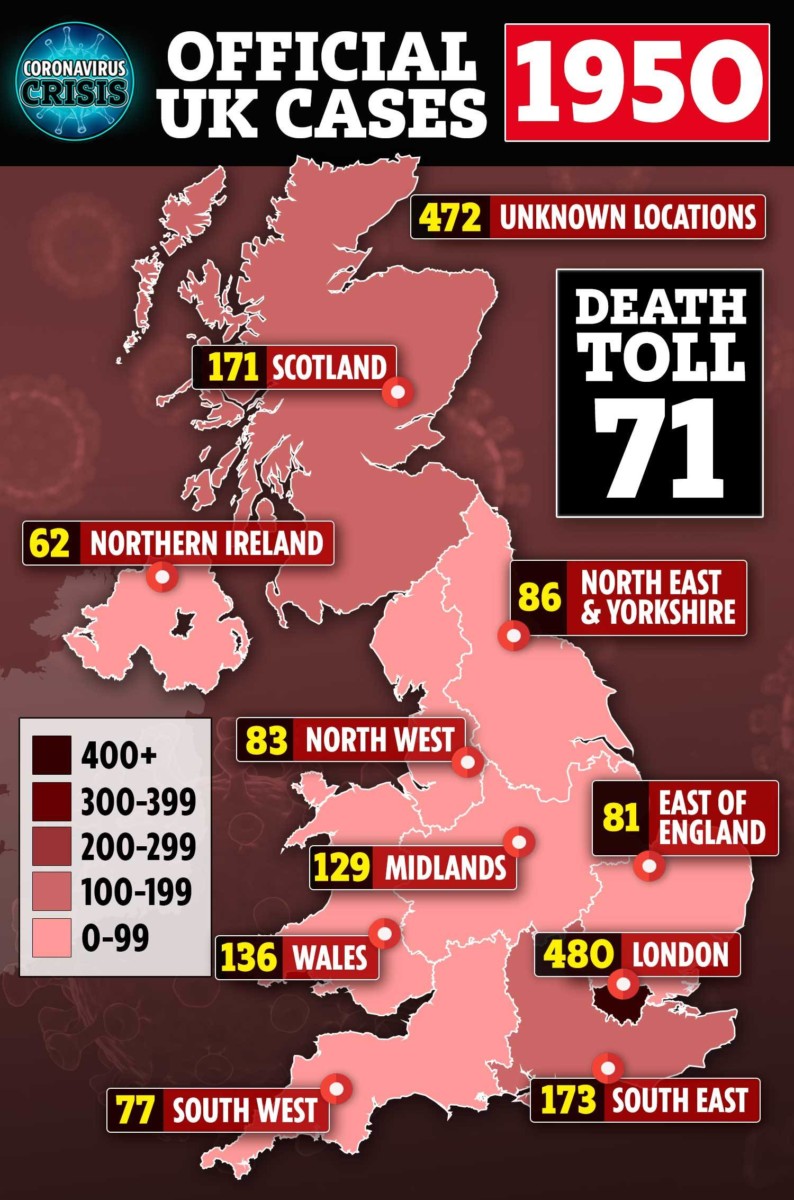
“Side effects associated with NSAIDs such as ibuprofen, especially if taken regularly for a prolonged period, are stomach irritation and stress on the kidneys, which can be more severe in people who already have stomach or kidney issues.
“It is not clear from the French minister’s comments whether the advice given is generic ‘good practice’ guidance or specifically related to data emerging from cases of Covid-19, but this might become clear in due course.
“It should also be noted that, in the UK, we would not commonly use cortisone to relieve infection-related symptoms such as fever.”
More research needed
Dr Charlotte Warren-Gash, associate professor of epidemiology at London School of Hygiene and Tropical Medicine, added: “For Covid-19, research is needed into the effects of specific NSAIDs among people with different underlying health conditions, which takes into account the severity of infection.
“In the meantime, for treating symptoms such as fever and sore throat, it seems sensible to stick to paracetamol as first choice.”
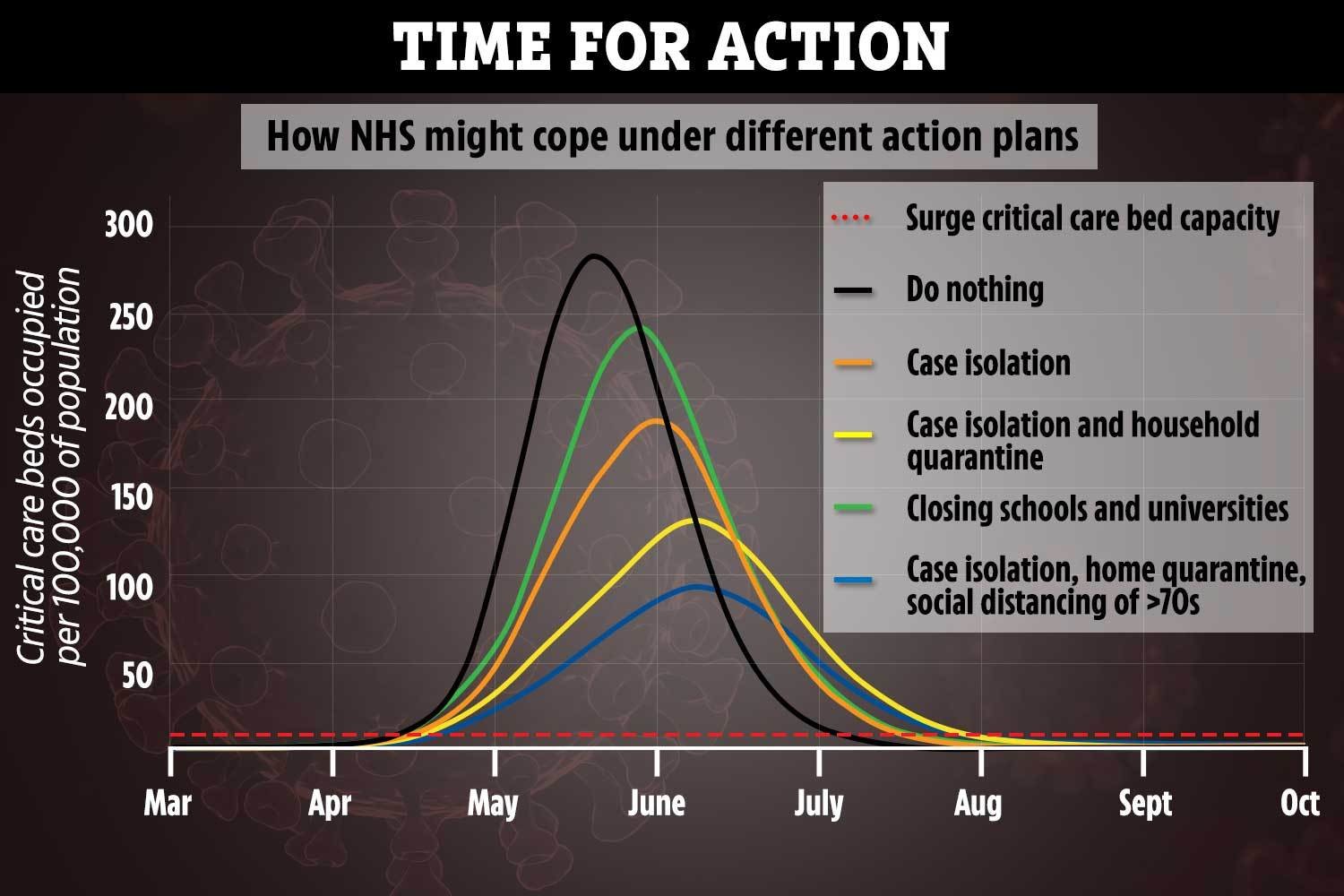
Professor Ian Jones, virologist at the University of Reading, added: “The advice relates to ibuprofen’s anti-inflammatory properties, that is, it dampens down the immune system, which may slow the recovery process.
“In addition, it is likely, based on the substantial literature around Sars I and the similarities this new virus (Sars-CoV-2) has to Sars I, that the virus reduces a key enzyme which part-regulates the water and salt concentration in the blood and could be part of the pneumonia seen in extreme cases.
“Ibuprofen aggravates this while paracetamol does not. It is recommended that people use paracetamol to reduce temperature if you are feverish.”
PHE said that there is no conclusive evidence that taking ibuprofen is harmful for other respiratory infections.
It added that patients who have been prescribed NSAIDs for long-term health problems should continue to take them as directed by their healthcare professional.
HOAR has contacted the NHS for comment.









